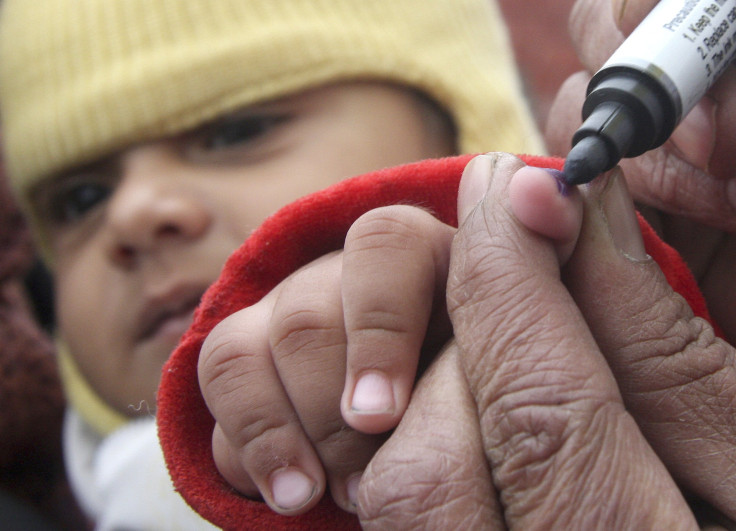India Has Remained Polio-Free For 3 Years Now, Putting It On Track To Officially Become A Polio-Free Country

India, the world’s second-most populated country in the world, has now gone three years without a single case of wild poliovirus, or WPV, being reported.
Monday, Jan. 13 marked the milestone for India, which according to the Global Polio Eradication Initiative, was considered to be “the most difficult country in which to achieve polio eradication.” The World Health Organization, or WHO, has to confirm there are no undetected cases before making the landmark official, Associated Press reported. Worldwide, there were 372 reported cases of WPV in 2013, according to the GPEI, with Somalia, Pakistan and Nigeria topping the list of cases for the year.
“Five years ago, India was home to nearly half of the world’s new polio cases. At the time, if you asked any health expert, they would have said India would be the last place on earth to end polio,” Bill Gates wrote on Impatient Optimists, a website related to the Bill & Melinda Gates Foundation.
According to the WHO, it along with GPEI took on polio in the largest private-public partnership for health care in 1988 when there were 350,000 cases of polio-related paralysis every year. Since then, polio case numbers have decreased by more than 99 percent.
India, with its high population density and birth rate, and its poor sanitation record and health care system, was considered an extremely challenging place to eradicate the disease until a sustained public health campaign began having an effect on the numbers.
GPEI assists countries in carrying out vaccinations on a massive scale, the WHO website says. For instance, on a single day of a national immunization campaign in India, there are 640,000 vaccination booths and 2.3 million people administering 200 million doses of vaccine to 172 million children in 191 million homes.
The number of polio cases came down from 741 in 2009 to 42 in 2010, AP reported, adding that the last case of polio was reported in eastern India in 2011.
Afghanistan, Nigeria and Pakistan -- the only three countries where polio is endemic -- face a range of issues “such as insecurity, weak health systems and poor sanitation,” the WHO noted, adding that there is a danger of polio spreading from these countries to others with inadequate access to vaccination.
Polio, according to the Centers for Disease Control and Prevention, "is a crippling and potentially deadly infectious disease caused by a virus that spreads from person to person invading the brain and spinal cord and causing paralysis," and it was eradicated in the U.S. by 1979.
“India’s victory galvanized the global health community to commit to achieving a polio-free world by 2018. Now, we only have 3 more countries to go, down from 125 in 1988,” Gates noted in his post.
© Copyright IBTimes 2024. All rights reserved.






















